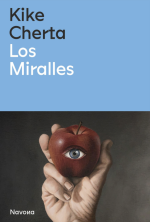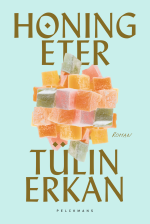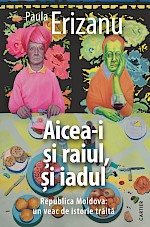View all filters
Clear
A ponte
Written in Portugese by João Valente
9 minutes read

Familia Miralles
Translated from
Spanish
to
Romanian
by Ilinca Gângă
Written in Spanish by Kike Cherta
9 minutes read

PŘÍLETY / GELİŞ (Medosavka)
Translated from
Dutch
to
Czech
by Klára Němcová
Written in Dutch by Tülin Erkan
6 minutes read
Elogio Del Huracán
Written in Spanish by Alejandro Morellón Mariano
4 minutes read

ARRIVALS / GELIȘ (Przyloty)
Translated from
Dutch
to
Polish
by Anna Opara
Written in Dutch by Tülin Erkan
6 minutes read
Punto di fuga
Translated from
Dutch
to
Italian
by Antonio De Sortis
Written in Dutch by Maud Vanhauwaert
8 minutes read
Elogio do Furacão
Translated from
Spanish
to
Portugese
by Miguel Martins
Written in Spanish by Alejandro Morellón Mariano
4 minutes read
Cathedra of hoe je slagroom maakt
Written in Dutch by Joost Oomen
8 minutes read

Міральєси
Translated from
Spanish
to
Ukranian
by Oleksandra Laktionova
Written in Spanish by Kike Cherta
7 minutes read
De brug
Translated from
Portugese
to
Dutch
by Anne Lopes Michielsen
Written in Portugese by João Valente
10 minutes read

Strážných
Translated from
Spanish
to
Czech
by Markéta Cubrová
Written in Spanish by Kike Cherta
7 minutes read

Гей, дівчата (It’s Both Heaven and Hell Here. Moldova: a Century of Lived History)
Translated from
Romanian
to
Ukranian
by Paulina-Ionela Onujec
Written in Romanian by Paula Erizanu
6 minutes read

Hej, devojke (It’s Both Heaven and Hell Here. Moldova: a Century of Lived History)
Translated from
Romanian
to
Serbian
by Mirela Belada
Written in Romanian by Paula Erizanu
7 minutes read

De familie Miralles
Translated from
Spanish
to
Dutch
by Lies Doms
Written in Spanish by Kike Cherta
9 minutes read
Pronájem
Translated from
Portugese
to
Czech
by Štěpánka Huláková
Written in Portugese by Daniela Costa
7 minutes read

ARRIVALS / GELIȘ (Medojed)
Translated from
Dutch
to
Serbian
by Tamara Britka
Written in Dutch by Tülin Erkan
7 minutes read
O arrendamento
Written in Portugese by Daniela Costa
8 minutes read
En Verre Vingers Tien
Written in Dutch by Joost Oomen
9 minutes read

Ech, dziewuszki (It’s Both Heaven and Hell Here. Moldova: a Century of Lived History)
Translated from
Romanian
to
Polish
by Aleksander Podgórny
Written in Romanian by Paula Erizanu
6 minutes read
Óda na hurikán
Translated from
Spanish
to
Czech
by Martina Kutková
Written in Spanish by Alejandro Morellón Mariano
3 minutes read